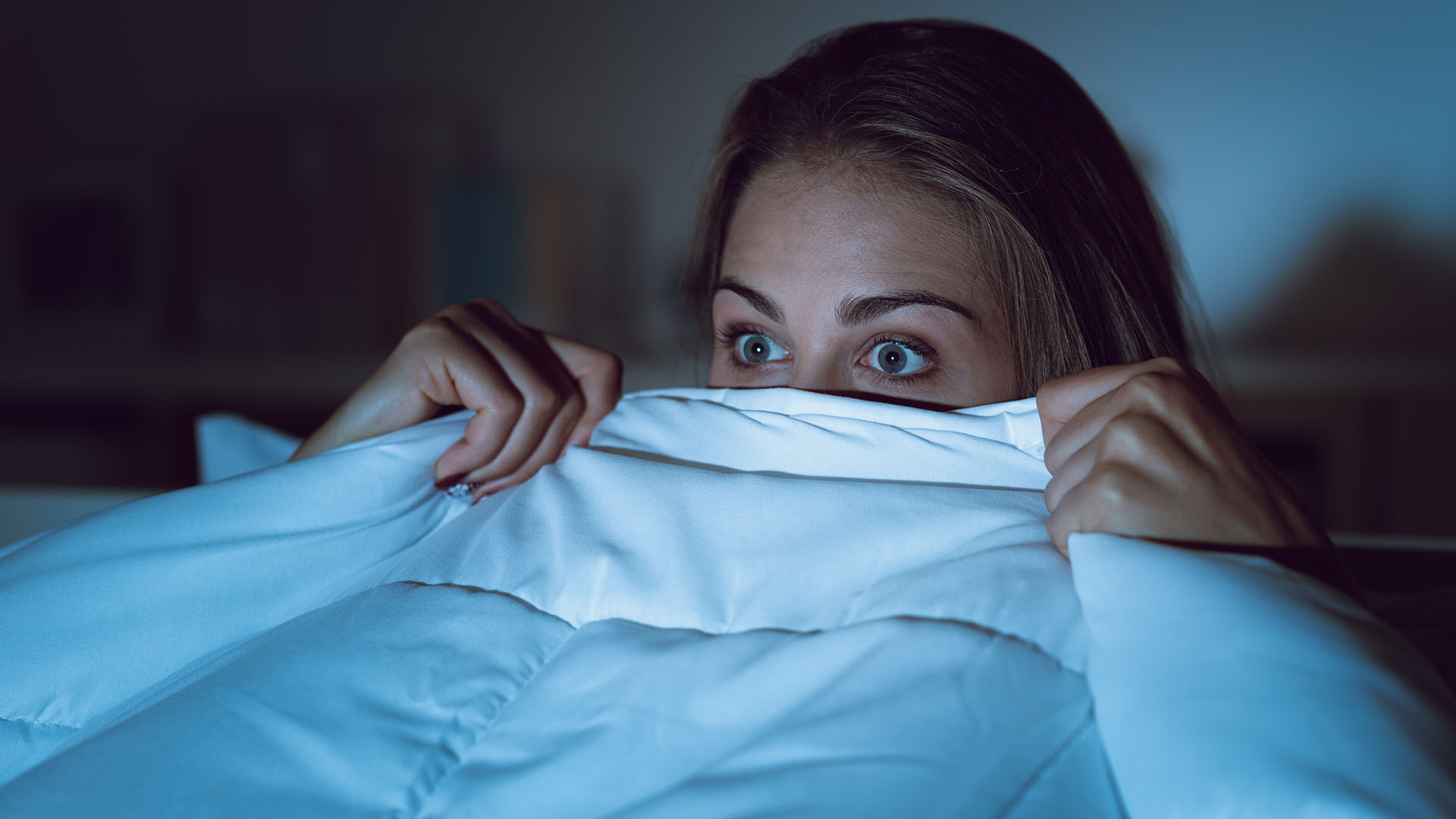Scared sleepless? 4 expert tips for avoiding nightmares after a horror movie binge
For scaredy cats who want to get some sleep this Halloween

Sign up for breaking news, reviews, opinion, top tech deals, and more.
You are now subscribed
Your newsletter sign-up was successful
It's Halloween weekend, and a traditional way to celebrate is by sticking on one of the best horror movies. But for some of us, let's say, less strong-stomached individuals, that's a one-way ticket to a sleepless night. If you know you're likely to struggle to fall asleep or sleep through the night after watching a scary movie, are there ways to neutralize the fear? We spoke to a qualified Sleep Scientist to find out.
"Horror films and television programs commonly cause nightmares, particularly in children. Several studies have shown that children who watch horror movies can develop fears of a film's topic (ghosts, vampires, crimes, etc.) which can cause the child stress," explains Theresa Schnorbach, who works with mattress brand Emma. "A 2010 study in America shows that one of the main fears developed from watching horror or scary movies was supernatural creatures, and someone being hurt. 50% of children involved in the study said they had nightmares after watching the film."
It's not just children who can be affected. But equally, not all adults will have a tough time relaxing after – for example – watching someone getting disemboweled on screen. "If you are a person who isn’t sensitive to horror movies, then it’s likely you won’t have any problems with your sleep or nightmares," says Theresa. "On the other hand, if you are more sensitive to the horror genre, then my advice is to try and avoid them altogether."
Know you're a horror wimp but decided to go for it anyway? Good for you. Try these tips for dodging nightmares after your Halloween horror binge, and don't come crying to us at 3am if they don't work.
1. Neutralize the threat
Theresa's first tip is to do something light, to take your mind off the terrible things you have just seen. If you're watching the scary movie in the evening, you could stick on a comedy show, for example, or watch a bit of sport, rather than trying to transition directly from horror to sleep. Or try chatting to someone about a topic that's completely unrelated to the horror movie.
In general, it's a good sleep hygiene practice to have a regular wind-down routine before bed. "As part of your evening routine, you should do activities that help feel calm and relaxed. Try some breathing exercises or having a bath to help you unwind before going to bed, and that may help improve your sleep."
2. Dodge the dark
If you can avoid it, don't watch the movie when it's dark outside. "Try watching the scary movie in the daytime and then expose yourself to natural light outside to filter out the anxiety provoked by the movie," suggests Theresa. When it is time to go to sleep, if the darkness is making you panic, you could try the sunset function on a wakeup light.
Sign up for breaking news, reviews, opinion, top tech deals, and more.
"Sleep gadgets such as sunrise alarms can help those who feel that light makes them feel safer. These alarms allow you to set times when the lights will switch on and off, thus avoiding night disturbances," she adds.
3. Enlist backup
Another good tip is to find someone to watch the film with. Even better, rope someone in who's seen it before. "Having someone else who knows what's coming can be very comforting when watching something scary," says Theresa.
4. Keep it outside the bedroom
"I would advise against watching horror films in the bedroom, as watching horror is associated with experiencing a traumatic event. Associating one's bedroom with a traumatic event can be very problematic and dangerous for your sleep," explains Theresa. Find a place that feels safe and secure, but crucially, make sure that place is not your bed.
If you're consistently having trouble sleeping, it might be that upgrading your sleep setup that could help. Head to our best mattress guide for our top recommendations, and be aware that the Black Friday mattress deals will start appearing before too long. Emma (the bed brand behind the Emma Original, one of our favorite mattresses), has also come out with a sleep app designed to help – the Emma Up app is available for free across app stores.

Theresa Schnorbach is a psychologist and sleep scientist, specialized in Clinical Psychology and Cognitive Neuropsychology. She has completed post-graduate training in Cognitive Behavioural Therapy for Insomnia (CBT-I) with the German Sleep Society (DGSM), endorsed by the European Research Society. She works as a sleep specialist for bed brand Emma.

Ruth is TechRadar's Homes Editor specializing in air (vacuum cleaners, fans, air purifiers), and hair (hair dryers, straighteners and stylers). She has been in consumer journalism since 2020, reviewing and writing about everything from outdoor kit to mattresses and wellness gadgets, with stints on Tom's Guide and T3.